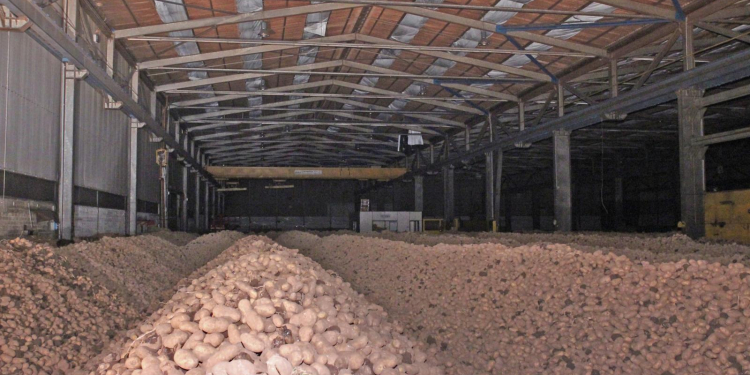The potato sector has been severely hit in 2020. The impact on the catering sector of the restrictions adopted to curb the spread of the pandemic put lots of pressure on storage potatoes, mainly intended for this channel. This situation has resulted in the region of Castile-Leon having around 50% more than usual in storage at this time, and with great difficulties to find markets for it, says Eduardo Arroyo, president of the Potato Producers Association of Castile-Leon (APPACYL).
Meanwhile, baggers continue to import French potatoes to fill the shelves. At the moment, more than 80% of the potatoes sold by retailers come from France, says Arroyo. But why buy French potatoes, when there are winter potatoes in storage?

On the one hand, because stored winter potatoes, despite their better culinary quality, also have a rougher skin, which makes them more difficult to wash, so they are consequently not as demanded by large distributors. On the other, even though prices are very low, around 50% ends up being discarded after calibration, while the French ones bought in bulk have a more homogeneous quality, so as a whole, they offer better value for money, says Eduardo Arroyo.

Faced with this situation, APPACYL has recommended that potato growers reduce their potato plantings this season by around 15% compared to the previous year, since it is expected that the demand in 2021 could be similar to that of 2020. This reduction is in line with that recommended by the Northwest European Potato Growers Association (NEPG).
APPACYL also recommends that farmers preferably plant the varieties that are easier to wash, instead of those intended for caterers. While it is true that the former offer lower yields, they are expected to be easier to sell in the face of the COVID-19 situation now looming. They also recommend that if crops are grown for the horeca channel, that this be done under contract, to ensure their subsequent sale.
Figures
Last season, 18,371 hectares of potatoes were planted (below initial forecasts) and 838,000 tons were harvested, according to the latest data from the Council of Agriculture of the Government of Castile-Leon. In 2021, the acreage is expected to be reduced to about 17,000 hectares, says Arroyo.
Source: agrodigital.com








